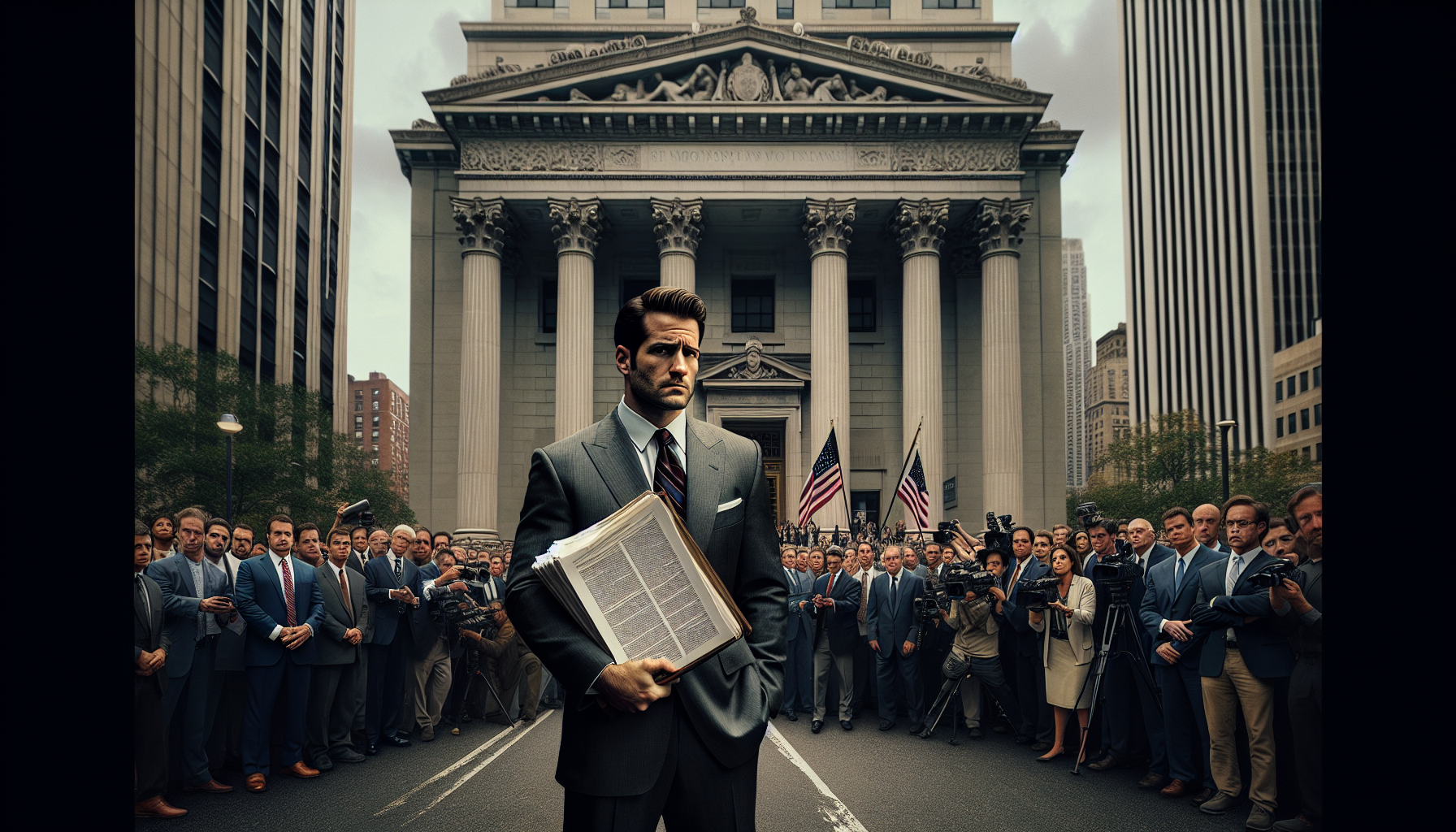President Donald Trump has filed a 96-page appeal with a New York appellate court seeking to overturn his felony conviction in the Manhattan hush money case, arguing the trial improperly relied on evidence tied to his official acts and that the judge should have recused himself.
President Donald Trump’s lawyers late Monday, October 27, filed an appeal with New York’s Appellate Division, First Department, asking judges to reverse his conviction for 34 counts of falsifying business records in the Manhattan hush money case. The filing renews claims that the trial judge should have stepped aside and that prosecutors relied on evidence of presidential “official acts” that should have been excluded. Politico and the Associated Press reported the brief is 96 pages. (politico.com)
Central to the appeal is the U.S. Supreme Court’s July 1, 2024 ruling in Trump v. United States, which held that a president has absolute immunity for core constitutional acts, presumptive immunity for other official acts, and no immunity for unofficial acts—and that evidence of immune official acts may not be used to prove crimes. Trump’s lawyers argue those evidentiary limits were violated at trial. (supreme.justia.com)
The case stems from a $130,000 payment in 2016 to adult film actor Stormy Daniels to suppress a claim of a 2006 sexual encounter that Trump denies. A Manhattan jury found Trump guilty on May 30, 2024, of 34 felony counts of falsifying business records. In January 2025, Justice Juan Merchan sentenced Trump to an unconditional discharge—imposing no jail, fine, or probation—though the felony conviction remains unless overturned on appeal. (reuters.com)
Beyond immunity, the appeal repeats arguments that the prosecution’s legal theory improperly elevated time-barred misdemeanors to felonies and that federal law preempts the state charges because they leaned on alleged federal campaign violations. The Associated Press reported that Trump’s lawyers also assert there was no criminal intent. (apnews.com)
Trump’s brief challenges the admission of White House-era communications, including testimony from former communications director Hope Hicks about discussions on responding to a forthcoming Wall Street Journal story. At trial, Justice Merchan ruled those conversations pertained to private matters rather than official duties; his written decision characterized the communications as “unofficial or private conduct.” (nycourts.gov)
The filing also revives a recusal bid, citing Justice Merchan’s small 2020 political donations to Democratic causes, including Joe Biden’s campaign—contributions that drew a caution from New York’s judicial conduct commission but did not result in discipline or recusal. Reuters has reported the complaint was dismissed with a caution, and Merchan previously rejected defense arguments for his removal. (reuters.com)
A spokesperson for Trump’s legal team called the submission a “powerhouse” appeal; CBS News reported the description and said the brief argued the case “should never have seen the inside of a courtroom.” (cbsnews.com)
If the Appellate Division reverses, the conviction would be vacated, removing the felony from Trump’s record; a loss could be appealed to New York’s highest court. Prosecutors have signaled they view the trial evidence as focused on personal conduct and therefore unaffected by the Supreme Court’s immunity ruling. (reuters.com)

